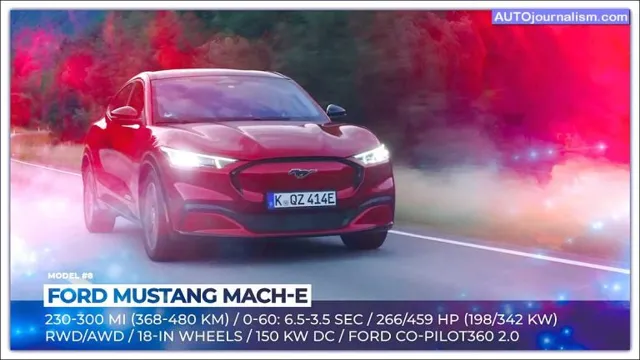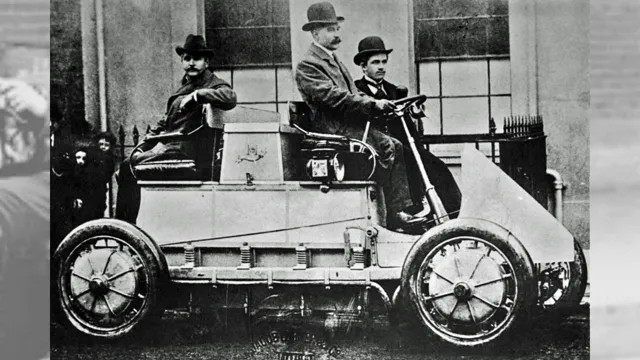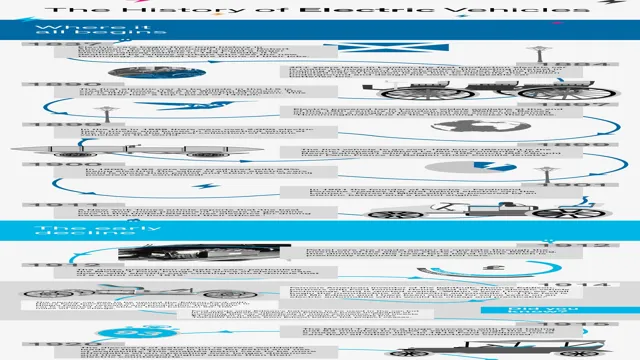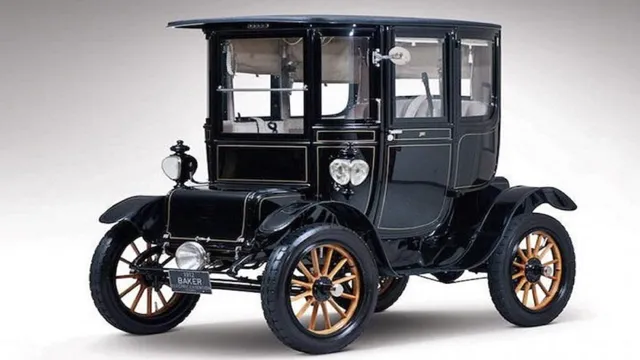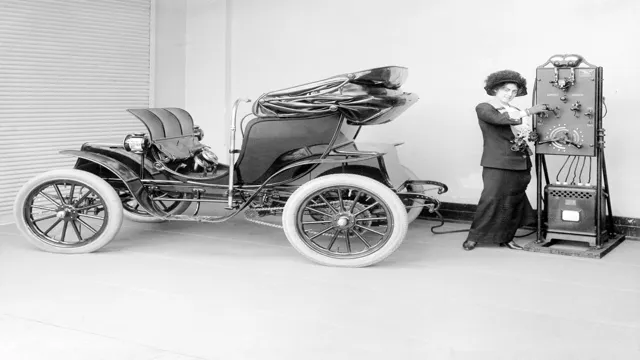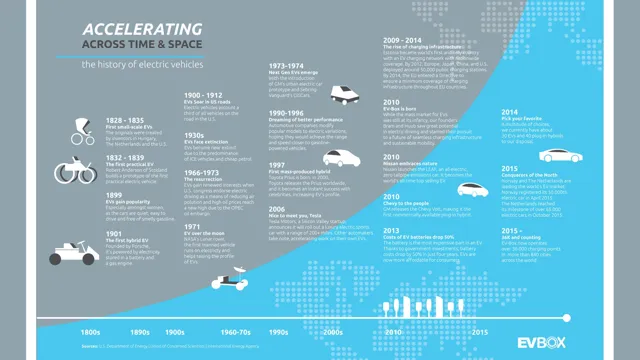The Electrifying Evolution of American Electric Cars: A Fascinating Journey through History
Electric cars are becoming a popular topic in modern society, but did you know that the concept of electric vehicles has been around for over a century? In the late 1800s and early 1900s, electric cars were actually more popular than gasoline-powered ones, with a vast majority being produced and sold in the United States. However, as the cost of gasoline decreased and infrastructure for gasoline-powered cars improved, electric cars dwindled in popularity. Yet, with climate change concerns and advancements in technology, electric cars are making a comeback.
In this blog, we’ll delve into the fascinating history of American electric cars, exploring the past, present, and potential future of these clean machines.
Early Electric Cars
American electric cars have a long and interesting history that stretches back to the late 1800s. The earliest electric cars were produced in the United States by several different manufacturers. These early models were often designed for use in cities and were seen as a cleaner, more efficient alternative to gasoline-powered vehicles.
However, their batteries were limited in storage capacity and took a long time to charge, which meant they had limited range and were often used for short trips around town. Despite these limitations, electric cars became very popular in the early 20th century, with many models being produced and sold throughout the United States. While the popularity of electric vehicles would eventually wane with the rise of gasoline-powered engines, they remain an important part of the history of the American automobile industry.
The First Electric Car
Electric cars have come a long way since they were first introduced in the early 1900s. The first electric car was invented by Thomas Davenport in 1835, but it wasn’t until the late 1800s that electric cars gained popularity. In fact, electric cars were more common than gasoline cars at the turn of the century, thanks in part to their ease of use and lack of emissions.
However, their short range and long recharge times made them impractical for long distance travel. That all changed when the internal combustion engine was developed, making gasoline cars more efficient and less expensive to produce than electric cars. It wasn’t until the 1990s that electric cars began to make a comeback, with advancements in battery technology making them more practical for everyday use.
Today, electric cars are becoming increasingly popular, with many major automakers investing in their development. It’s clear that electric cars are here to stay, and with their many environmental and economic benefits, they may one day surpass gasoline cars in popularity.
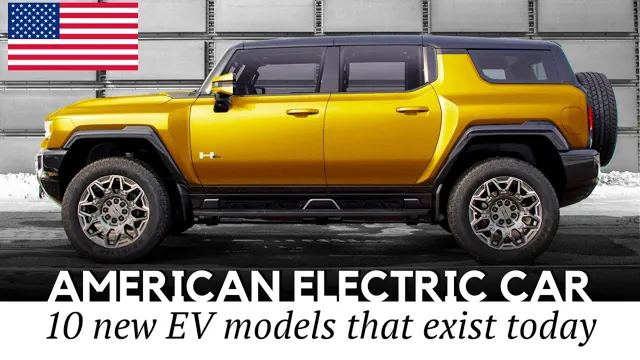
Electric Cars in the 1900s
Electric cars built in the 1900s were more common than you might think. They emerged as an early attempt to solve some of the issues experienced by gasoline-powered vehicles. People began to realize the potential advantages of electric cars, such as their low maintenance, quiet operation, and environment-friendly nature.
The biggest drawback was the limited battery that could only take a few miles before needing to recharge. Manufacturers at that time introduced several innovative battery technologies, including lead-acid, nickel-iron, and nickel-cadmium, which increased the range of these cars. Despite the promising future of these vehicles, Henry Ford’s Model T and the discovery of extensive petroleum reserves eventually swayed the market toward gasoline-powered vehicles.
Nonetheless, electric cars in the 1900s set the stage for the massive modern electric car revolution, ushering in our current era of sustainability-driven transportation.
The Decline of Electric Cars
The history of American electric cars has been varied, with periods of growth and decline. In the early 1900s, electric cars were popular due to their ease of use and lack of noise and pollution. However, the rise of gasoline-powered cars caused a decline in electric car production.
The 1970s saw a resurgence of interest in electric cars due to the oil crisis, but this was short-lived as gas prices fell. In the 1990s, the first modern electric cars were produced, but their limited range and high cost made them unpopular. Recently, there has been a renewed interest in electric cars due to concerns about climate change and advancements in technology.
While the decline of electric cars in the past may seem disheartening, it is evident that the future is bright for this sustainable and eco-friendly alternative to gas-powered vehicles.
Rise of Gasoline Cars
It’s hard to imagine now, but there was a time when electric cars outnumbered gasoline cars on the roads. That’s right, back in the early 1900s, electric cars were all the rage. They were quiet, easy to maneuver and didn’t require the same level of maintenance as their gasoline counterparts.
But over time, the rise of gasoline cars eventually led to the decline of electric cars. Gasoline cars had longer ranges, were more powerful and were backed by a booming oil industry. On the other hand, electric cars struggled with range anxiety and lacked the necessary infrastructure to support them.
As a result, gasoline cars quickly became the dominant mode of transportation, and electric cars were left in the dust. However, fast forward to today and we’re seeing a resurgence of electric cars. With advances in technology and a greater focus on sustainability, electric cars are becoming more popular than ever before.
So while gasoline cars may have won the battle in the past, it looks like electric cars are starting to win the war.
Lack of Infrastructure and Range Anxiety
Electric Cars Electric cars have been on the market for several years now, with the promise of being a more eco-friendly alternative to traditional gas-guzzling vehicles. However, despite their potential benefits, the lack of infrastructure and range anxiety have led to their decline in popularity. One of the biggest issues facing electric car owners is the limited number of charging stations available, making long-distance trips difficult and time-consuming.
Range anxiety, the fear of running out of battery power before reaching a charging station, is also a significant concern, with drivers needing to carefully plan their routes to avoid the risk of being stranded on the side of the road. Until infrastructure and range anxiety issues are addressed and resolved, the adoption of electric cars will continue to be limited, hindering progress towards a more sustainable transportation system.
Dependence on Oil Industry
As we all know, the oil industry has had a significant impact on the world economy for decades. One of the main reasons for this is the dependence on fossil fuels for transportation, which is why electric cars were once considered a promising solution to reduce dependence on the oil industry. However, there has been a decline in the popularity of electric cars.
This is partly due to the challenges of building a charging infrastructure to support electric vehicles and the high cost of production. At the same time, we cannot ignore the fact that the oil industry has a long-standing hold on the economy and politics, making it difficult for electric cars to make a large-scale impact. In addition, the burstiness of the electric car industry makes it hard to predict the future growth of this technology.
Although electric cars present a viable solution to reduce dependence on the oil industry, there are still significant challenges. So, it is imperative that we work toward finding new solutions and reducing our reliance on the oil industry, which has a negative impact on the environment and our economy.
The Reemergence of Electric Cars
The history of American electric cars dates back to the early 1900s when they were first introduced as a viable alternative to gasoline-powered vehicles. Despite their early success, electric cars were quickly surpassed by the convenience and affordability of gasoline vehicles. However, with the growing effects of climate change and the need for sustainable transportation, electric cars have made a significant comeback in recent years.
Companies such as Tesla, General Motors, and Ford have invested heavily in the development of electric vehicles, resulting in more consumer options and a more affordable price point. With the rise of charging stations across the country, electric cars are becoming a more practical choice for everyday drivers. As we continue to prioritize the preservation of our planet, the reemergence of electric cars is more important than ever.
Environmental Concerns and Government Support
As environmental concerns continue to grow, the government is stepping up to support initiatives that promote sustainability. One of the biggest examples of this is the reemergence of electric cars. With zero emissions, electric vehicles offer an incredibly attractive option for consumers who are looking to reduce their environmental footprint.
And with government incentives in place, there has never been a better time to make the switch. From tax rebates to reduced tolls, electric vehicle drivers are being rewarded for choosing cleaner transportation options. It’s hoped that this support will encourage even more people to make the switch to electric, leading to a greener, cleaner future for all of us.
Advancements in Battery Technology
The advancements in battery technology have facilitated the reemergence of electric cars. With more sustainable and cost-effective batteries, electric cars have become a viable alternative to traditional gas-powered vehicles. These new batteries offer longer ranges and faster charging times, making electric cars more practical for daily use.
Gone are the days when you had to worry about running out of power in the middle of a long trip. The new generation of electric cars with advanced batteries are designed to make the transition to electric cars seamless and stress-free. Imagine a world where you can drive your car for hundreds of miles without worrying about the range! The development of these batteries has been a game-changer, and we can expect to see even more impressive advancements in the near future.
Are you ready to join the electric car revolution and embrace a more environmentally-friendly future?
The Future of American Electric Cars
American electric cars have come a long way since their inception, and this trend is set to continue well into the future. The history of American electric cars is a rich tapestry of innovation and progress that dates back to the early 19th century when the first electric cars were invented; however, it wasn’t until the turn of the 21st century that these cars began to truly capture the public’s imagination. The launch of the Tesla Roadster in 2008 marked a turning point in the history of electric cars, and since then, manufacturers across the country have been racing to develop their own innovative and environmentally friendly vehicles.
With advancements in battery technology, and a renewed focus on sustainability and reducing emissions, it is clear that American electric cars will play a pivotal role in the future of transportation. Whether it’s the Tesla Model S, the Chevrolet Bolt EV, or the Ford Mustang Mach-E, there has never been a better time to invest in an American electric car.
Conclusion
In conclusion, the history of American electric cars has been a bumpy ride, full of ups and downs. From their promising beginnings in the early 1900s to their eventual decline due to the rise of gasoline-powered vehicles, electric cars have persevered and are now making a comeback. With advancements in technology and an increasing demand for sustainable transportation, electric cars are poised to become a major player in the automotive industry once again.
As Benjamin Franklin once said, “Energy and persistence conquer all things.” It seems that electric cars have embodied this mantra and are ready for their moment in the spotlight. So, buckle up and charge on, because the future of transportation is looking electrically charged!”
FAQs
What was the first American electric car?
The first American electric car was built in 1891 by William Morrison.
When did electric cars become popular in America?
Electric cars became popular in America in the early 1900s, with over 30,000 on the road by 1912.
What caused the decline of electric cars in America?
The discovery of Texas oil in 1911 caused gasoline prices to drop dramatically, making it more affordable for consumers to use gasoline-powered cars. Additionally, the invention of the electric starter in 1912 made gasoline-powered cars much easier to operate.
What was the first mass-produced American electric car?
The General Motors EV1 was the first mass-produced American electric car, introduced in 1996.

